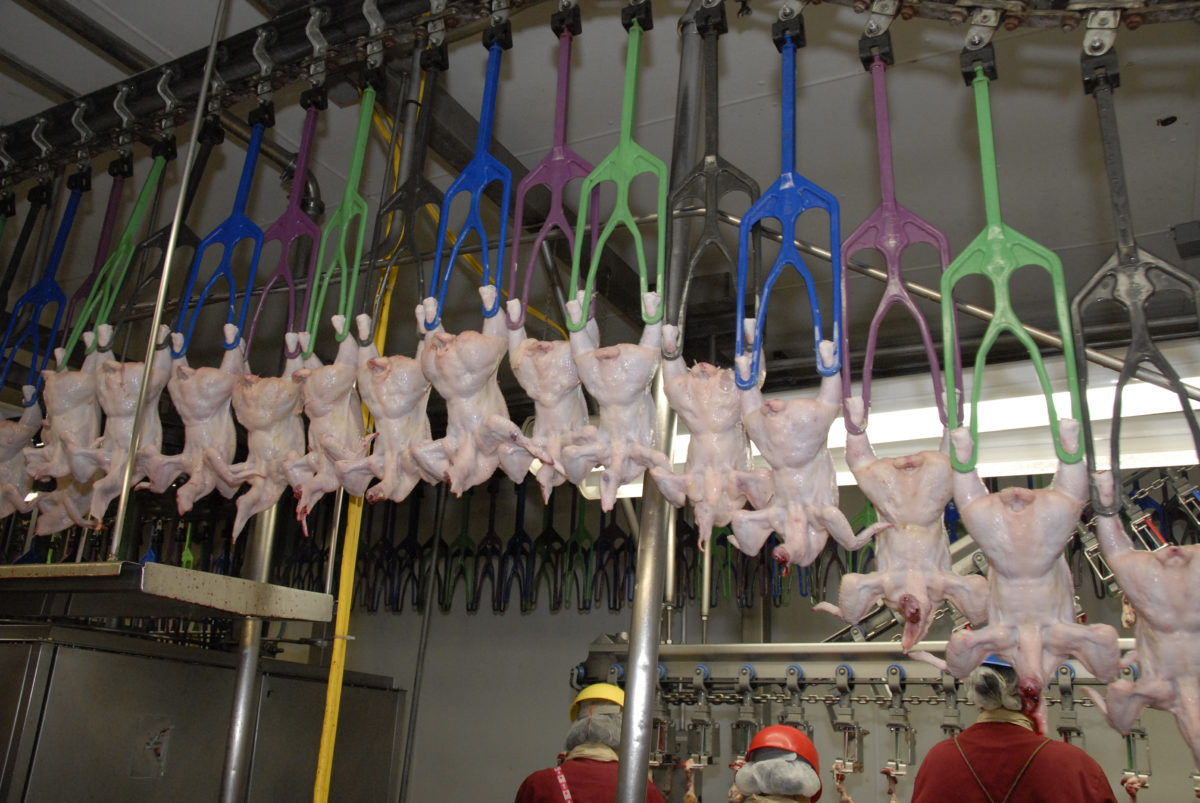The bill contains provisions meant for rural America, but critics believe it misses an opportunity to expand crucial federal programs like SNAP, or extend protections for vulnerable groups, like farmworkers, meatpackers, and family farms.
The Senate unanimously passed an updated $484 billion coronavirus stimulus package Tuesday, including several provisions important to rural America. The aid package, a supplement to the $2.2 trillion CARES Act passed in March, is expected to pass the House later this week.
Specific provisions important to rural America include:
Rural Small Business Relief
S.A. 1578 directs the Small Business Administration (SBA)’s Economic Injury Disaster Loan (EIDL) program to allow agricultural businesses to participate. Agricultural businesses would become eligible through EIDL for low-interest loans and may also qualify for the $10,000 emergency grants administered by SBA, according to Jerry Hagstrom reporting for DTN.
“To be eligible, ag businesses will have to show that they have been hurt by the economic downturn caused by the coronavirus. The emergency grants are limited to $1,000 per employee up to a max of $10,000. Applications for the program are administered by the Small Business Administration,” Hagstrom writes. EIDL is part of the SBA’s Payroll Protection Program (PPP).
Funding for Rural Hospitals and Health Care Providers
The relief package includes $825 million in funding for rural health clinics and community health centers, as well as $4.25 billion provided to areas based on relative number of COVID-19 cases, according to an email received from the National Rural Health Association (NHRA).
NHRA is disappointed that the package does not establish a rural set-aside within the Provider Relief Fund, nor does it contain clear language to allow small government-owned hospitals the ability to participate in the SBA’s PPP.
SNAP
S.A. 1578 doesn’t include additional funding for SNAP (the Supplemental Nutrition Assistance Program, formerly known as “food stamps”). SNAP advocates, including Food Research and Action Center (FRAC) are organizing a SNAP Day of Action today, April 22nd, calling for:
- boosting SNAP maximum benefits by 15 percent;
- increasing the minimum SNAP benefit from $16 to $30; and
- suspending all SNAP administrative rules that would terminate or cut benefits.
SNAP is important for millions of low-income rural Americans, while also providing economic benefits and job creation for the rural grocers. A dollar in SNAP generates $1.79 in additional economic activity, according to USDA’s Economic Research Service (ERS).
Another recent ERS report studied the economic performance of the “economic stimulus” SNAP package passed in 2009’s American Recovery and Reinvestment Act’s additional $40 billion in total SNAP benefits for low-income Americans from 2009 to 2013.
ERS found that the increase was enough to give each recipient an extra 13 percent in benefits. During the peak and immediate aftermath of the Great Recession, nonmetropolitan counties gained one job for every $10,000 in increased snapped redemptions.
County and Local Governments
The interim package would provide $25 billion for “necessary expenses to research, develop, validate, manufacture, purchase, administer and expand capacity for COVID-19 tests” to help effectively monitor and suppress the COVID-19 pandemic. The National Association of Counties (NACo) reports that the package includes:
- $11 billion in direct funding for states, localities and territories to scale up the administration’s COVID-19 testing, laboratory capacity, contact tracing, and support employer testing. Additional funding for tests would assist rural counties with expanding testing.
- $225 million in direct funds to rural health clinics through grants and other mechanisms.
- Up to $1 billion to cover the cost of testing for the uninsured. Many publicly-owned rural hospitals serve a large number of uninsured patients.
Funding for increased testing capacity is critical especially in rural counties, according to NACo, as rural hospital systems in these areas have experienced increased financial strain due to loss revenue streams from non-COVID-19 related care.
Family Farmers, Farmworkers and Meatpacking Workers
The National Farmers Union is supportive of the “much-needed stimulus,” according to an email sent to Daily Yonder. NFU supports additional funding for PPP and EIDL and supports the agricultural business directive.
The organization cautions, however, that funding will run out quickly for both for PPP and EIDL. NFU believes that agricultural businesses would have more success in obtaining needed funding through USDA Rural Development programs.
Many organizations are criticizing President Trump and USDA for mishandling the coronavirus infection hot spots expanding rapidly among farmworkers and meatpacking workers. Scott Faber, Senior V.P. of Government Affairs for the Environmental Working Group, criticized S.A. 1578 in a statement: “As more and more become sick, food supply chains could quickly unravel, causing food prices to spike. Congress missed an opportunity to ensure that food and farm workers have protective gear, free COVID-19 testing, sick pay and hazard pay. Congress also missed an opportunity to increase the standard SNAP benefits to help ensure every family has enough to eat. Legislators must do more to protect our food supply chains and the people who take great personal risks to feed us,” Faber stated.
This article was originally published by The Daily Yonder.



